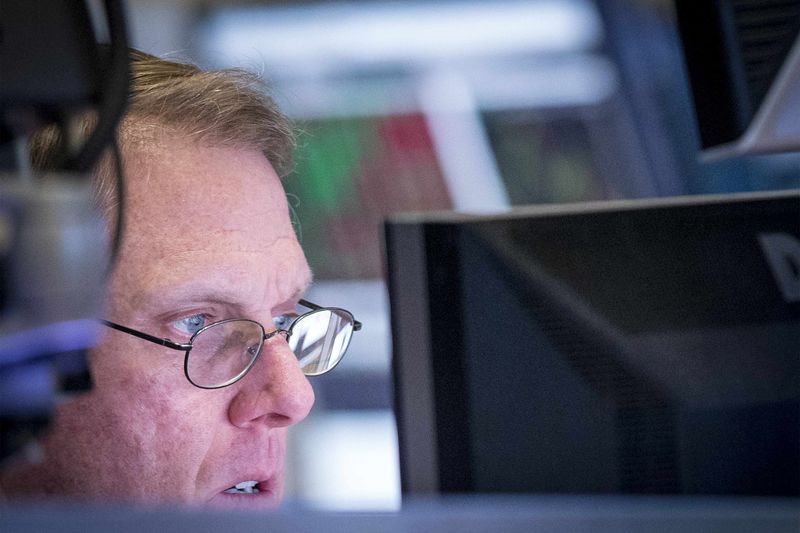Benzinga - by Matt Whittaker, .
U.S. delegation attends mining conference in South Africa, signaling increased interest in African minerals and combating China's dominance.
A U.S. delegation to a major mining conference in South Africa last week included officials from the Treasury and State departments and the chair of the nation's official export credit agency.
Mining and building infrastructure on the continent hasn't traditionally been a U.S. government priority. But that is changing now that decarbonization of the economy has taken a front seat and Washington has grown worried about China's dominance of supply chains for strategic materials, including cobalt and copper, used in electric vehicles and renewable energy systems powered by wind turbines and solar panels.
"It's absolutely unprecedented, the level of delegation," Thomas Sheehy, a fellow with the United States Institute of Peace, a think tank, told a local television outlet at the mining gathering. "That's a realization of the importance of African mining. It's been building for a couple years but has really been supercharged by the Biden administration's energy agenda."
An area in Central Africa known as the Copperbelt is of particular interest to U.S. officials. The area straddles the Democratic Republic of Congo and Zambia and holds more than a 10th of the known copper deposits in the earth's crust. The DRC produces around 70% of the world's cobalt, which is generally a byproduct of copper mining.
Most of that cobalt is exported to China, which is by far the world's biggest importer of copper ores and concentrates. So it's no surprise that China has been investing heavily in the African mining and transportation sector.
Chinese entities own all or part of most of the producing mines in the DRC, according to the U.S. Institute for Peace. China provided interest-free financing for a railway built in the 1970s linking Zambia's Copperbelt to a port in Tanzania on Africa's east coast. China this week announced a plan to revitalize that railway, providing direct competition to a U.S.-backed rail corridor from the mineral-rich area to the other side of the continent.
Also Read: New Gold To Implement Plan To Boost Gold, Copper Production
Faced with a long game of catch-up, the United States in May said it was performing due diligence for a potential financing package to fund a rail line from the DRC border to the Lobito Port in Angola on Africa's west coast. That money would support a consortium led by commodities trading giant Trafigura that is upgrading a rail line first constructed in the early 1900s and that was heavily damaged during the Angolan Civil War that started after the nation's independence from Portugal in the 1970s.
That railway, known as the Lobito corridor, is expected to greatly reduce the time and cost of trucking copper and cobalt to ports.
Canadian company Ivanhoe Mines Ltd (OTC:IVPAF) is the first mining customer for the Lobito corridor, having this week signed an agreement for the right to transport 120,000-240,000 metric tons a year along the line for five years starting in 2025, with a ramp-up year in 2024. The miner has already been making trial shipments along the corridor. (Trafigura also signed a term sheet for up to 450,000 metric tons a year from 2025.)
"The transformative economic corridor will unlock more copper projects due to the lower logistical costs," Ivanhoe executive co-chairman Robert Friedland said in a statement last week. "Cheaper logistics increase the amount of economically recoverable copper across the Copperbelt, as cut-off grades can be lowered."
The company didn't respond to a request for comment about how much the corridor will save it in operating costs.
But RBC Capital Market analyst Sam Crittenden noted that the company thinks costs will come down by 20% once it gets a new smelter up and running at its main copper complex in the DRC. That saves on transportation costs by allowing the company to export a much purer copper product, reducing the tonnage that has to be hauled.
"Any savings from rail would be over and above that," Crittenden told Benzinga.
Meanwhile, at least one other mining company is eyeing space on the future rail corridor. KoBold Metals, a privately held mineral exploration company backed by Bill Gates and Jeff Bezos that uses artificial intelligence to scout out potential mines, is working to develop a big copper mine in Zambia.
The company told Benzinga that it supports the Lobito corridor project and anticipates being a major customer.
British multinational mining company Anglo American, which is exploring for copper and cobalt in Zambia, also is supportive of the Lobito corridor upgrade.
“We of course welcome the development of such critical infrastructure to enable an acceleration of investment into the production of critical minerals in Southern Africa,” spokeswoman Rebecca Meeson-Frizelle told Benzinga.
A Thursday Bloomberg article, reporting on an interview with Zambia's president Hakainde Hichilema, indicated (without citing a source) that the corridor will also connect mines owned by Barrick Gold Corp. (NYSE:GOLD) and First Quantum Minerals Ltd (OTC:FQVLF) to the port.
Those mining companies didn't respond to requests for comment from Benzinga.
Now Read: JPMorgan Lowers Piedmont Lithium Price Target; This IPO Is Oversubscribed; Nexa Reports Results; Compass Refocuses
Photo: Shutterstock
© 2024 Benzinga.com. Benzinga does not provide investment advice. All rights reserved.
